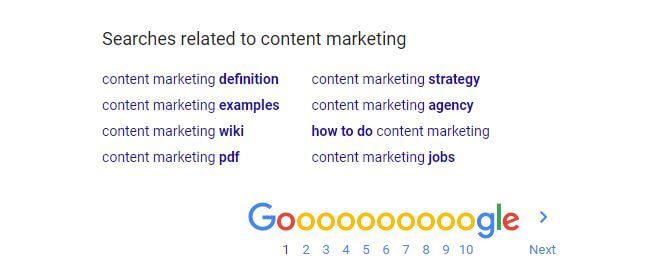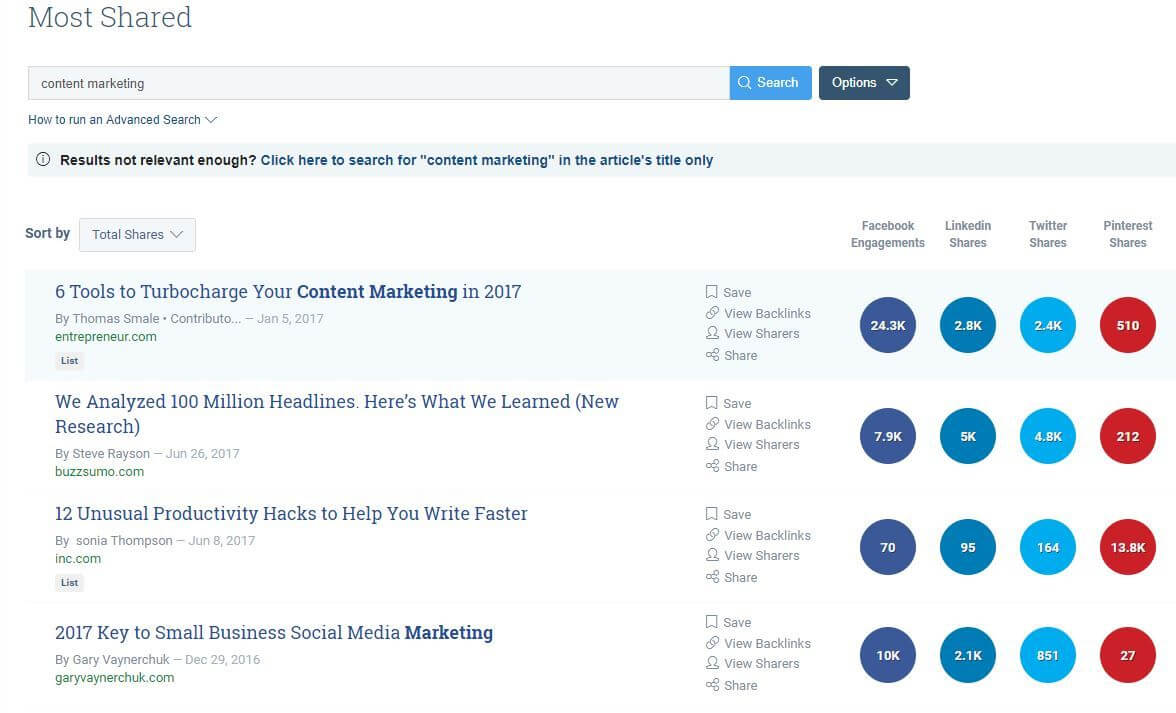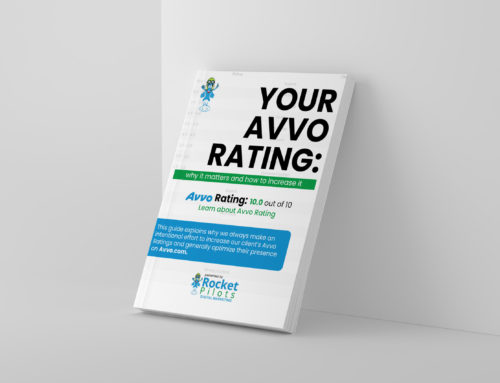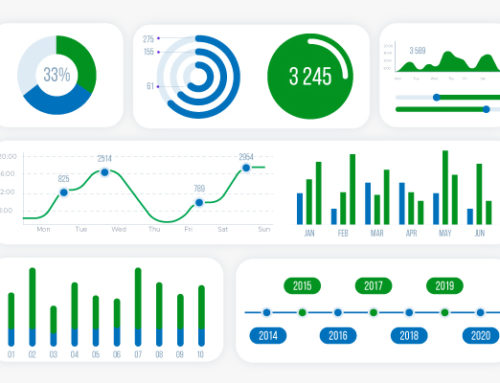Most small businesses struggle with a sustainable content strategy. One of the biggest reasons for this is they aren’t sure how to properly create and manage a blog content strategy.

The internet is full of dead blogs. An ambitious entrepreneur learns the importance of content marketing and vows to post a weekly blog. Things go decent for the first few months until they start struggling with blog ideas, realize their efforts are not resulting in new traffic to the site, and they quickly realize how time consuming it is to blog on a regular basis.
Does this story sound familiar?
If you’re ready to learn how to create a process that is achievable to execute, is sustainable, and will assist in hitting your sales goals, read on!
Creating Your Editorial Calendar
I have learned that many small business owners or marketing professionals just sit down and start typing their blog post. I’ve even seen people log directly into their site and go straight to adding post. This ad hoc mindset lacks the preparation required and will inevitably result in low quality content. Low quality or thin content promotes all the wrong metrics, like drops in search engine rankings, low dwell time, and high bounce rates. Of course, this assumes people actually make it to your post in the first place.
Before you even begin to type a word of your post, you will need to create an editorial calendar. An editorial calendar is a document that represents upcoming postings. The blog topics on your calendar are consequences of the research you conducted in order to find blog topics that solve your customers’ and prospective customers’ problems.
In other words, you are going to write about topics your prospects will find highly engaging and valuable.
Your editorial calendar can include other important details like the focus keyword or phrase you are targeting, why specifically you are covering this topic, articles you want to link to, similar articles currently ranking well, and publishers that could benefit from linking to your new article.
Often you will be crafting article titles around keywords or specific phrases you want to rank for in the organic search results. With that said, let’s take a deep dive into choosing a keyword or phrase to target.
Choosing a Keyword or Phrase to Target

The first thing I do before working on the Rocket Pilots editorial calendar is review our current rankings and analytics. For keyword rankings I use a tool called Authority Labs. Authority Labs shows organic rankings for Google, Yahoo, and Bing for keywords previously identified on desktop and mobile.
What I am looking for here is a keyword on the second page that is close to page 1 and/or a keyword that has a great deal of momentum and is quickly moving through the rankings. Sometimes that next piece of content is all you need to jump from page 2 to page 1.
A word of caution on this tactic:
I want to advise you not to use keywords unnaturally.
You need to be able to craft a compelling headline that incorporates the keyword or target phrase very naturally into your page title. Additionally, the premise of the article should satisfy “user intent” and fulfill the criteria of providing highly valuable insight to your customers and prospective customers.
If you have blogged in the past, be sure to conduct a brief content analysis in Google Analytics. Sometimes the keyword or phrase to target will not be as clear cut, especially as you get further along in your blogging efforts. Looking at how content performed in Google Analytics might influence your decision on what category to blog about next.
For example, let’s say you have an outdoor game eCommerce store and you realize your postings about beach games receive way better engagement than other categories. This finding might persuade you to come up with another topic about beach games to feed your readers what they are interested in reading about.
Focusing on User Intent—And Stop Stressing Over a Specific Keyword
While keyword research is important, the reason for its importance has changed over the years. In the early- to mid-2000s there used to be thousands of low competition, yet highly profitable keywords. These opportunities appeared in a variety of niches. These were also the days when slapping together a 300 word blog, stuffed with keywords, would rank a site practically overnight.
These days are long gone and search engine algorithms have become much more sophisticated. Unfortunately, competition for many keywords has risen dramatically. That does not mean you can’t compete and beat your competition. It does not mean that at all! If you’re a small business owner competing in local markets, there are likely many opportunities to beat your local competitors out of online traffic and leads.
If you focus on user intent and commit to producing long form content, you no longer have to stress over keyword research.
Content produced to satisfy the true intent of the user will outperform unnaturally written content produced to serve a specific keyword. Sometimes when a user searches, they are not sure exactly what they are looking for until they see some results. Long form content has a better chance of aligning with their intent. Long form content also naturally uses synonyms to keywords you would like to rank for and Latent Semantic Indexing or LSI keywords so Google will have no problem determining what your content is about and deciding when to serve it on the search engine results page.
You’ll have to think a little harder and get inside your customers’ and prospective customers’ head a little to find blog topic ideas that are user-intent focused.
If you have a specific keyword or phrase you want to rank for and you can naturally craft it into a compelling title, then go for it. If that keyword or phrase does not naturally make a great blog title, then don’t worry. Your new goal is to find a title that covers the general category and satisfies a search query from the perspective of “user intent.” From there, just worry about creating a killer piece of content!
How to Identify New Blog Topic Ideas
When it comes to blogging, the real work is in planning and preparation. Even professional writers get stuck coming up with new blog topics. I’m going to give you some best practices and a process to follow that will ensure you never run out of ideas for your editorial calendar.
Competitors or Related Sites in Your Industry
Start by conducting live Google searches for your core keywords you need to rank for. Review the search engine results page for which results show up on the first page organically. Create a list of sites ranking prominently and review their blog content.
When conducting this exercise for Rocket Pilots clients, I like to look for out-of-market sites in big cities that are ranking well. Check out New York City, L.A., Chicago, Houston, Philadelphia, and Phoenix, for example. You can also check out tech-oriented cities because advertisers are often well represented and a place on the first page of search engines is competitive. Seattle and San Francisco are smaller but tech-savvy markets that fit this criteria.
Once you have compiled your elaborate list of competing sites, it’s time to review their blogs one by one. You are not looking to copy anyone, of course, but you’re looking for ideas and inspiration.
Look for content that is performing well with geo-modified titles (article with city name or region in the title). You may come across a great idea to write a similar article geo-modified for San Diego or your respective city.
Quora
Quora is a very underutilized tool for Off Page SEO, building online authority, and generating content ideas.
Let’s say, for example, that you have a weight loss product and blog and you are looking for content ideas. Simply visit Quora and type in “Weight Loss” to the search box.
You can sort by Questions, Answers, Posts, and by Time Posted, but the default view is pretty good. I just did this exercise and the first question listed was, “What are the best weight loss drugs, medicines, and supplements?” Without even clicking the answer, you can learn that around 300 people answered the question. If you click on the answer, you will learn that nearly 400 people are following this thread.
This high volume of interactivity on Quora indicates that the question is of great interest to enthusiasts of this topic. Take this as an opportunity to review the best answers. Copy and paste the answer into Google and review other content on the web.
How thoroughly has this specific question been addressed?
Has it been beaten to death by large publishers? Does their content contain loads of backlinks and look unbeatable?
Or is it the contrary? Has this topic not been properly addressed and is the internet screaming for a high quality piece of content to tackle every angle of this question?
If the latter is true, you’ve struck gold. Add this topic or an iteration of the general premise to your editorial calendar and get to work on your new piece of content!
This article is not about Off Page SEO, but I thought I’d throw in a trick to maximize the value from Quora. Make sure your article is also the best response in the Quora thread. Then, answer the question on Quora with a slight variation of your new blog post. If your response truly is the best answer, the Quora community will recognize its value and upvote your response to the top of the thread.
Add a few links to your article, and now you have a new traffic source. If the Quora thread ever ranks on Google, you will be piggy backing Quora’s domain authority for more traffic to your site.
Bonus Tip: This can also be done purposefully by first identifying a Quora thread that ranks for an important keyword, phrase or question. Then deciding to write the best response and acquire the upvotes. The goal is to leverage Quora to make it to page one of the Search Engine Results Page. If you implement this approach, you would be executing an advanced SEO tactic called Barnacle SEO.
Yahoo Answers
Yahoo, like Quora, is another platform where a high volume of questions are posted and answered. The concept for coming up with blog ideas on Yahoo Answers is the same as Quora. Yahoo Answers used to be the most popular question-and-answer platform, but lately Quora has taken over in usage and popularity.
Live Searches on Google
This tactic is very straightforward. If you have a category in mind, just do a live Google search. Review the results and see if you come across any good ideas. You will likely get a mixed bag of results on the first page—competitor sites, big publishers, directories, and reviews sites (depending on your industry).
This is one of those rare opportunities where it makes sense to review page 2, 3, and 4 since you are just looking for ideas and inspiration.
Google’s Autocomplete
While you are doing live searches on Google, pay attention to the suggested searches as well. The suggested searches come from relevant searches you have done in the past as well as trending stories. You may see a search term that is highly relevant that could lead to a great idea for an article.
Advanced Search Operators
You can use the following Google Advanced Search Operators to further refine the search results:
- inurl:blog “keyword” – This command will only return web addresses with the word “blog” in them. Simply add your keyword or phrase.
- inurl:”keyword” – This command returns results where the keyword is in the URL.
- intitle:”keyword” – This command returns results where the keyword is in the title.
- intext:”keyword” – Returns results where the keyword is in the text.
If you’re producing a piece of content for a potential guest post, you can use some advanced search operators to find guest post opportunities as well.
- Keyword inurl:guest-post
- Keyword inurl:write-for-us
- Keyword inurl:guest-post-guidelines
Google’s “Searches Related”
Once you have conducted a live search on Google, you can scroll to the bottom of the search engine results page and review the section titled “Searches related to + search query.”

I have actually found perfect article ideas for clients in this section. But more often than not it will lead you to a search you did not think of. Simply click one of the hyperlinks and continue your hunt for the perfect article idea.
BuzzSumo
BuzzSumo is a tool that helps you find the most shared content and key influencers. If a piece of content has been shared a high number of times, it’s clear that the content solves critical problems and addresses important questions.
BuzzSumo has a free option and paid premium plans. It’s incredibly simple to use and understand the results.

To use BuzzSumo you will need to enter a keyword or phrase and then click Search. The tool will return content relating to your search and show social media metrics for each piece of content. For example, how much engagement on Facebook, how many LinkedIn shares, how many Twitter shares, and total shares. You can also filter by the following data points: date, content type, language, country, word count, and domains.
Use BuzzSumo to come up with ideas inspired by very popular pieces of content in your niche.
Bonus Tip: If you have a Link Building campaign going on, BuzzSumo is a great way to identify influencers in your industry. Make a list of key influencers and come up with a plan to build relationships with them. Chances are the domain authority of their site is high and a backlink could help immensely!
Join Facebook Groups
If you’re rolling your eyes and thinking this sounds like a colossal waste of time, hear me out. Facebook groups have been strangely valuable for Rocket Pilots. I have found value by being an active participant in groups and even acquired new clients. Some groups are a complete waste of time with the moderators aggressively pushing a product or service, while others are full of like-minded individuals sharing industry-related challenges and posing questions to the group. These challenges and questions can be great blog ideas. Pay close to attention to questions that end up with a lot of engagement.
Identify Influential Twitter Users
Find Twitter users in your industry with an abundance of followers and who are clearly thought leaders. Follow these users and review their tweets. Look for tweets that have a lot of shares and likes. Carefully review what they are tweeting and decide whether something similar would be a good fit for your audience. Then craft a blog topic based on the review of these Tweets!
Review Blog Comments
If you are committed to content marketing, you’ve probably already read popular industry blogs or big publisher websites. Check out the comment section at the bottom of the posts. You will have to be patient and probably scroll through some negativity, banter, and eager marketers dropping in links to their sites. In between the madness, there are industry professionals asking important questions. Review these gems and potential ideas for your editorial calendar.
Utilize FlipBoard
FlipBoard positions its brand as “The One Place for All Your Interests.” Flipboard aggregates content from all over, and users share high quality pieces. Just type a topic into the search bar and you will see a variety of related pieces of content. It’s a buffet of blog topic ideas.
There is a subreddit for nearly every topic. Identify a subreddit related to your industry and subscribe. If you’re not familiar with how Reddit works, users submit content which is then upvoted or downvoted by the community. By nature, content at the top is the most popular. Review upvoted content for ideas. I recommend downloading the mobile app. If you have some down time, pull up the app, access your subreddit subscriptions, and browse the feed for content ideas.
Conclusion
My goal with this article was to make sure you are thinking long term with your blog content strategy. If you don’t have an editorial calendar, start one soon. The calendar will add an element of organization and will formalize your blogging process. It also helps prevent over-optimization if you manage which keywords or phrases you set as your focus keyword for each blog post on the calendar.
Many webmasters struggle with ideas for their blog and abandon the mission due to frustration. Utilize these tactics and you will never run short of blog ideas. From there, upload the blogs to your site, optimize with all On Page SEO best practices, build some links, and watch your targeted traffic grow immensely!
What has been your experience with managing your blog strategy? Do you have other tactics you utilize for ideas?
Rocket Pilots Digital Marketing
Rocket Pilots specializes in law firm internet marketing, personal injury lawyer SEO, websites for lawyers, and more. Reach out to us for a free consultation today.






